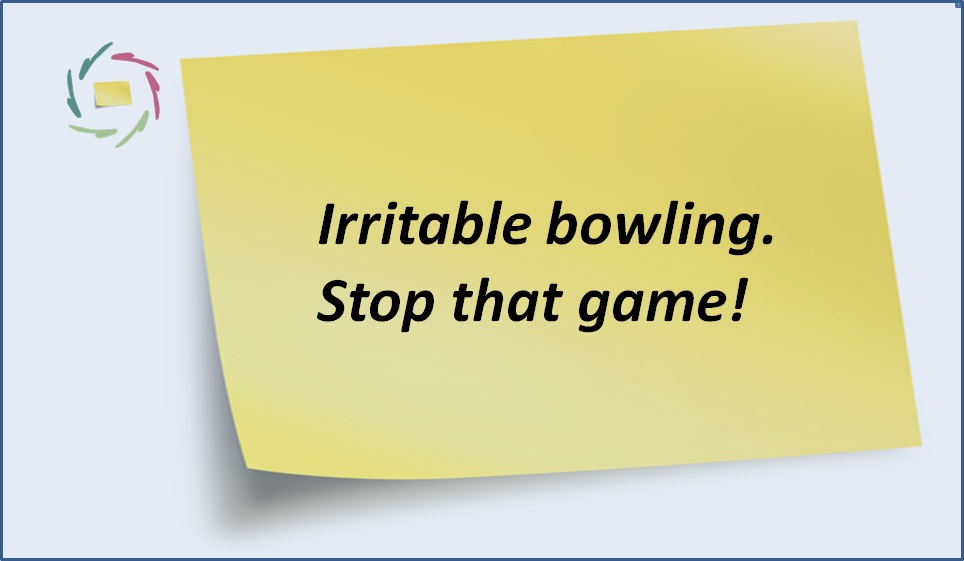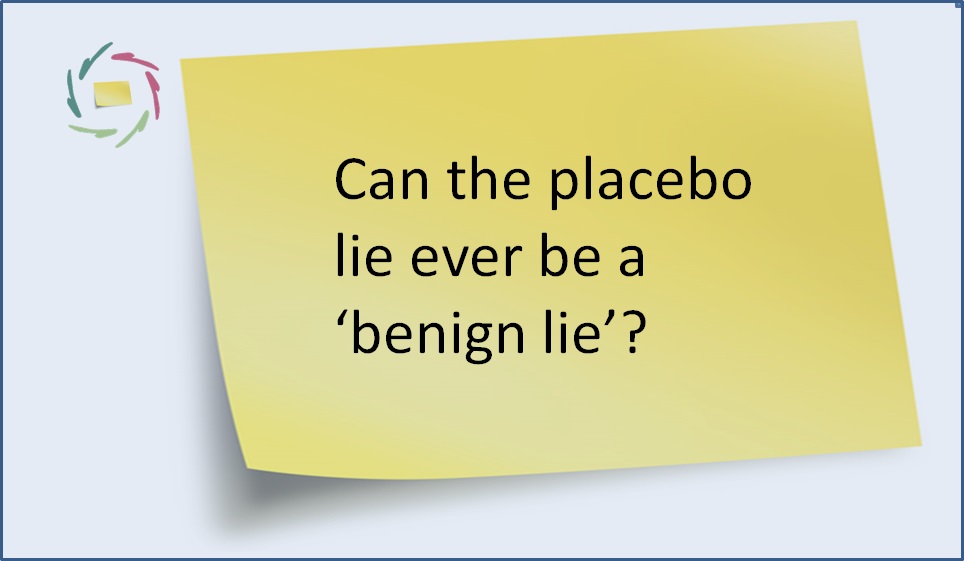59. Irritable bowling. Stop that game!

On average 10% of patients attending a GP are seeking advice mainly for symptoms of irritable bowels. A gastroenterologist sees up to 30% of his clientele suffering from this. Yet the painful truth for the people suffering from this painful condition is that medicine has no substantial answer to this. There is really a lot of pain in this game!
◊◊◊
It’s a curious situation. I wonder how the future will look upon it. With incredulity or with downright abomination?
◊◊◊
Will they read this text and understand where it comes from?
◊◊◊
All these irritable bowels, clearly asking for a proper treatment from the psychological standpoint, are treated by ‘experts’ who have no proper education in this and in most cases aren’t even interested. The result: an enormous amount of unnecessary investigations, purely symptomatic medication-based ‘treatments’, wrong diagnoses, frustration from all sides – doctor and patient alike. In many cases ending in a referral to a psychiatrist, who himself too – oh Moira ! – in many cases has no really good idea of what is going on. ‘Irritable bowels’ is not a psychiatric disease.
◊◊◊
- One can shoot the expert. But that wouldn’t make a difference. I said above ‘the bowels are asking for a proper treatment’. That was not a grammatical mistake. The bowels are asking for it. The patients themselves in many cases are not. On the contrary, most frequently the patients are somehow stuck in the same boat as the experts, asking for, no, demanding a materialistic treatment. It’s the current, I guess. Too much current. Wrong direction.
◊◊◊
So what is to be done?
◊◊◊
I guess this particular problem will only be solved on a big scale when in a much broader context humankind will evolve towards a much better insight into the own human psyche. Of course, the bowels can help in this. After all, there is wisdom in the idea, prevalent in East and West, that there is wisdom coming from the belly. Maybe our bowels will save us in the end?
◊◊◊
Bowels are a very good means of communication of the subconscious. They are very reactive, well provided with autonomic nerves and there is even a big nervous center (solar plexus) in the belly where a LOT of subconscious processing is going on – one could go so far as to say it’s a second ‘brain’.
◊◊◊
So I said: an organ of communication. But who listens to it? The use of a stethoscope, how important it may be in other circumstances, is to no avail in this. Neither are RX, NMR, echo, etc., if the ones who interpret the findings do no enter the world of the bowels themselves. Sadly, the brain upstairs is mostly using another language than the brain downstairs.
◊◊◊
Still, one day, I hope our bowels will arise from their depths and help us find the way… The sooner the better.
◊◊◊


